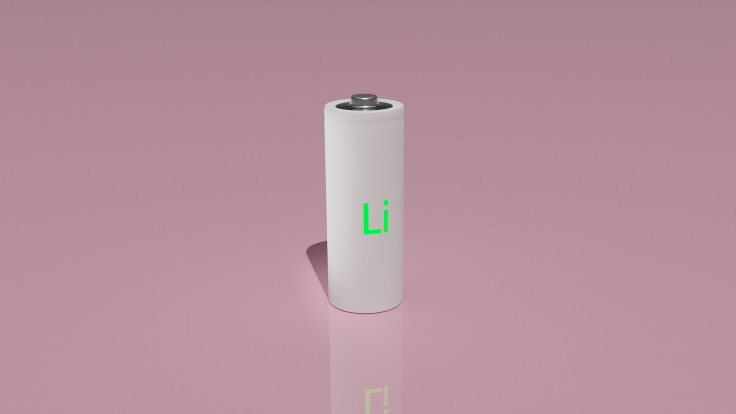Dragonfly Energy Prioritizes Safe Battery Innovation, Domestic Manufacturing To Address Rising Lithium Fire Concerns

With increased gasoline costs, an acceleration of modern consumer electronics and a heavier focus on a "green" future, the world is transitioning to new battery technologies to meet today's rising power demands and reduce its reliance on fossil fuels. Among this shift, we've discovered a dependency on finding efficient and inexpensive ways to power our lives, with lithium as the clear solution. From electric vehicles, bikes and scooters to the phones we keep in our pockets, these batteries are everywhere.
While lithium batteries are more environmentally friendly and safer than traditional lead-acid options, they do have safety concerns of their own. In New York City alone,17 people have died from battery-related fires this year. The NY Fire Department has attributed these incidents to the influx of unregulated lithium batteries from overseas, facilitated by e-commerce giants to meet the surging demand.
The adage "you get what you pay for" aptly applies to lithium batteries. Many inexpensive batteries produced overseas undergo inadequate testing and lack the necessary certifications to ensure compliance with safety standards required for safe operation. Lithium's highly reactive nature poses a risk of battery explosion or fire. This is why devices containing lithium batteries must be carried on board when flying, to mitigate the risk of ignition, while stored unattended in the cargo hold.
Dragonfly Energy (Nasdaq: DFLI) was founded over ten years ago with the mission of domestically developing the world's first non-flammable lithium battery. While continuing extensive research and development toward that goal, the company has established itself as a leading manufacturer of deep-cycle lithium-ion batteries, prioritizing safety through rigorous quality control, leveraging high-quality materials and third-party testing. Elevating consumer education on lithium battery systems is a crucial component of a safety-first approach, especially in light of the recent surge in serious incidents.
The company's founder and CEO, Dr. Denis Phares, is a battery scientist who leads advancements in groundbreaking battery technologies and frequently speaks on industry panels and conferences about how product safety within this growing industry is simply not up for debate.
"It is imperative that we, as manufacturers, prioritize safety above all else. We are committed to setting the industry standard for safety, and urge all lithium battery manufacturers to follow our lead in embracing this fundamental principle across products. Only by working together can we ensure that lithium batteries continue to power our future in a safe and responsible manner."
Dragonfly Energy's commitment to safety shines through with its popular off grid battery brand, Battle Born Batteries. The packs use LiFePO4 (Lithium Iron Phosphate), known as the safest lithium chemistry available, and are built with premium components, including the highest grade of UL-listed cylindrical battery cells. To mitigate the risk of fire or explosion propagation in the event of thermal runaway, each cell is equipped with a fail-safe mechanism that releases pressure and isolates the affected cell. The products are also designed with a proprietary battery management system that protects against the most common causes of battery failures and dangers. Most importantly, Dragonfly Energy rigorously tests its batteries to adhere to various industry standards, such as IEC 62133 and UL 2054 for safety, UN38.3 for shipping, and IP65 for dust and water resistance.
Beyond its current battery pack assembly business, Dragonfly Energy remains steadfast in its goal of establishing domestic lithium cell production. This endeavor aims to bring the entire process to the shores of the U.S., with far-reaching implications for national security, energy independence and industry advancement. Currently, there are no American plants producing LiFePO4 cells, forcing battery manufacturers to rely on imports. Dragonfly Energy, armed with over 85 patents, many of which pertain to battery cell production, is poised to address this critical gap. The company seeks to bolster the manufacturing capacity of its facility in Reno, Nevada, aptly dubbed the "lithium capital of North America" due to the abundance of lithium deposits.
"Dragonfly Energy is relentlessly pursuing advancements in domestic battery manufacturing, driven by our commitment to innovation and quality," asserts Phares. "We are dedicated to optimizing our processes and technologies to achieve cost-effectiveness while increasing safety. Our recently completed pilot line will soon produce full battery cells. This chemistry agnostic process will enable us to manufacture a wide range of lithium cells, including LiFePO4, the chemistry currently utilized in our battery packs, as well as LCO and NMC for consumer electronics and EVs."
Phares further emphasizes the significance of the company's domestic cell manufacturing capabilities, highlighting its role in achieving the long-held goal of developing non-flammable batteries.
"The realization of a non-flammable battery, long considered an industry Holy Grail and a cornerstone of Dragonfly Energy's inception, marks the pinnacle of our development goals. Our domestic cell manufacturing efforts serve as a pivotal step towards transforming this technological aspiration into a tangible reality."





















